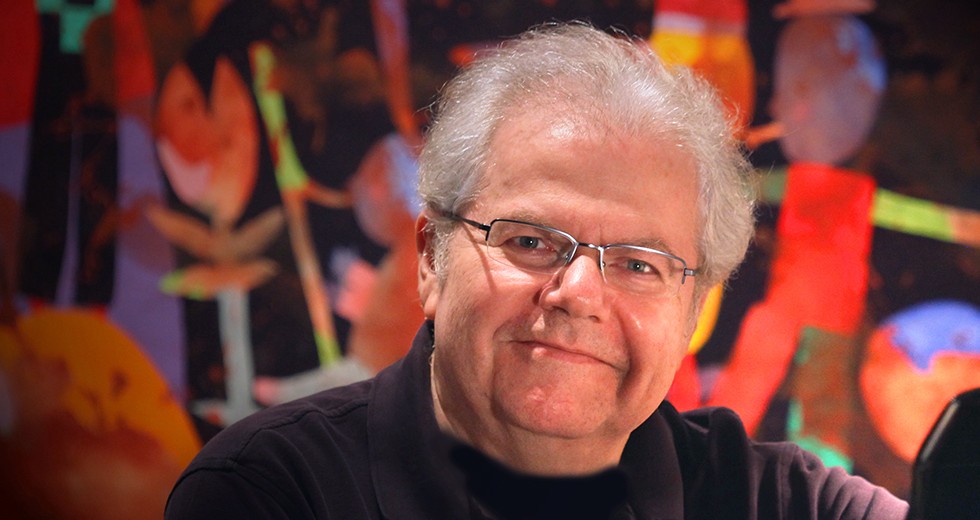
Emanuel Ax first performed one of Ludwig van Beethoven’s five piano concertos during his orchestral debut at age 18 with the now-defunct Miami Beach (Fla.) Symphony, and he has gone on to play all of them regularly throughout his eminent career. While certainly there are other important groups of concertos, such as the five by Sergei Rachmaninoff or 23 by Wolfgang Amadeus Mozart, Beethoven’s are indisputably bedrock works within the form. “For a pianist, they are as important as anything,” Ax said.
Ax will be the first soloist when the Chicago Symphony Orchestra launches on Oct. 20-22 a season-long presentation of the complete cycle of Beethoven piano concertos with guest conductor David Afkham on the podium. The subsequent schedule will be:
- Feb. 2, Piano Concerto No. 2 with Richard Goode and conductor Iván Fischer leading the Budapest Festival Orchestra (as part of the SCP Orchestra Series)
- March 16-21, Piano Concerto No. 3 with Mitsuko Uchida and conductor Riccardo Muti
- Feb. 16-18, Piano Concerto No. 4 with Yefim Bronfman and Muti
- April 27-29, Piano Concerto No. 5 (Emperor) with Radu Lupu and Muti
“It’s an honor to be included,” said Ax, 67, who this season is also marking the 40th anniversary of his first performance with the CSO. “These are all amazing, wonderful artists, and I’m looking forward to being part of it.”
Unlike some compositional cycles, which include infrequently heard works, all five Beethoven piano concertos are familiar and frequently performed. Ax is confident that such familiarity only adds to the appeal of such a project. “Hearing those pieces is always great, whether you hear them in a week, in two nights or over a season,” he said. “They’re fantastic. I think also the Beethoven concertos do sell tickets. They’re popular and deservedly so.”
Although Beethoven wrote fewer piano concertos than he did symphonies (nine) or string quartets (16), they nonetheless offer insightful glimpses into his evolution as a composer and the challenges he experienced in his life. They were composed from 1795 through 1809 during what are known as the early and middle periods of his career. “They’re each incredibly strong individually,” Ax said. “They represent different parts of his life, but certainly, there is no piano concerto from the last years. That may have been simply because he wasn’t playing. By all odds, he was certainly the greatest pianist of his time. I don’t think there is much dispute about that, and I think one of the reasons he wrote these pieces was to play them himself. And they are on an incredible level of virtuosity. I don’t think there was anyone at the time who was writing anything that hard and that adventurousness. It’s difficult music, and I’m sure there weren’t many people if anyone other than Beethoven who could play it.”
Much can be learned from these works about Beethoven’s strengths as a performer, such as the passages of double notes. “In the First Concerto right away, the opening of the third movement is very hard,” Ax said. “For him, I think that was comfortable, and it’s the kind of thing you don’t see from many other composers, especially then.” In addition, the composer had an incredible sense of timing and architecture — gifts that allowed him to experiment with ease, especially in the Fourth and Fifth concertos. “Starting the Fourth Piano Concerto with the piano alone is the least of it,” Ax said. “It’s things like measure no. 6, which takes you to a key that normally would be reserved for starting the second movement, which he does with the third concerto. In other words, E major from C minor or B major from G major. That kind of adventure is pretty amazing.”
As for pianists he admires in this repertoire, Ax has many. “There is no end of terrific performances of those pieces,” he said. He grew up listening to the 1956 recordings of the concertos featuring legendary pianist Arthur Rubinstein with conductor Josef Krips and the Symphony of the Air. Ax also was “incredibly taken” with the 1959-61 recordings of Leon Fleisher and the Cleveland Orchestra with famed conductor George Szell. “I think those are amazing and still remain pretty much near the top of anybody’s list,” he said. Ax was also an admirer of Rudolf Serkin’s approach to the concertos, and he described Vladimir Horowitz’s take on the Emperor Concerto as “pretty spectacular.” “Fima [Yefim] Bronfman recorded them with David Zinman, and those are wonderful performances,” Ax said.
Beethoven’s Piano Concerto No. 1 was the second of the composer’s concertos that Ax took on publicly, and his performance of it was a high-profile one. In the late 1970s, he filled in at the prestigious Tanglewood Music Festival in Lenox, Mass., for a pianist who had canceled a few months earlier. “I had learned the piece when I was 13 or something like that and had never performed it,” Ax said. “I worked very hard and played it there with Edo de Waart and the Boston Symphony.”
The Fourth and Fifth concertos are likely performed the most, and Ax suspects that No. 2 is heard the least. He has no favorite among the five. “I couldn’t begin to pick one,” he said. “They’re all sensational pieces in their own way. One is grander than another. One is more chamber-like than another. But they are all extraordinary.”
Kyle MacMillan, former classical music critic of the Denver Post, is a Chicago-based arts journalist.